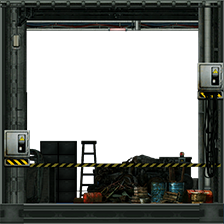Cài đặt Steam
Đăng nhập
|
Ngôn ngữ
简体中文 (Hán giản thể)
繁體中文 (Hán phồn thể)
日本語 (Nhật)
한국어 (Hàn Quốc)
ไทย (Thái)
Български (Bungari)
Čeština (CH Séc)
Dansk (Đan Mạch)
Deutsch (Đức)
English (Anh)
Español - España (Tây Ban Nha - TBN)
Español - Latinoamérica (Tây Ban Nha cho Mỹ Latin)
Ελληνικά (Hy Lạp)
Français (Pháp)
Italiano (Ý)
Bahasa Indonesia (tiếng Indonesia)
Magyar (Hungary)
Nederlands (Hà Lan)
Norsk (Na Uy)
Polski (Ba Lan)
Português (Tiếng Bồ Đào Nha - BĐN)
Português - Brasil (Bồ Đào Nha - Brazil)
Română (Rumani)
Русский (Nga)
Suomi (Phần Lan)
Svenska (Thụy Điển)
Türkçe (Thổ Nhĩ Kỳ)
Українська (Ukraine)
Báo cáo lỗi dịch thuật


 Virginia, United States
Virginia, United States 




































└📁Program Files (x86)
⠀└📁steam
⠀⠀└📁steamapps
⠀⠀⠀└📁common
⠀⠀⠀⠀└📁Counter-Strike: Global Offensive
⠀⠀⠀⠀⠀└📁Skills
⠀⠀⠀⠀⠀⠀└⚠️This folder is empty
⠀⠀⠀⠀⠀└📁 Aim
⠀⠀⠀⠀⠀⠀└⚠️This folder is empty
📁USB (D:)
└📁CS:GO Cheats
⠀└⠀✅AimBot
⠀└⠀✅Bhops
⠀└⠀✅Cancerbot
⠀└⠀✅Triggerbot
Lets start with the basics.
Mass: It also tells you how much "stuff" is in it. Now by stuff I kind of mean atoms and molecules but different atoms and molecules do not weigh the same, so the amount of "stuff" is dependent on the thing we are talking about. It is also a measurement of inertia, which is an object resistance to acceleration (or deceleration). Units to measure mass include but are not limited grams, pounds, tons, kilograms, stones, etc.
Volume: How much room something takes up (3-d space) units include (cubic centimeters, cubic meters, liters, etc)
Density: Mass of an object per given unit of volume this can be found by dividing mass by the volume it occupies. (g/L which is a gram per liter, could also be gr